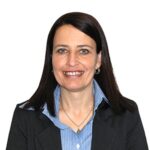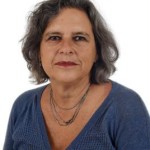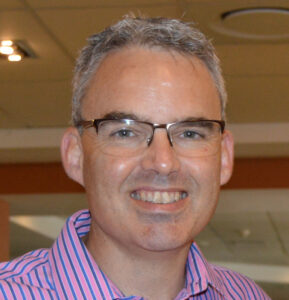Opening Address by Prof Arnold Schoonwinkel
KEYNOTE: Celebrating 10 years of learning and teaching at Stellenbosch University: An ongoing journey
KEYNOTE: POWERPOINT PRESENTATION
The Scholarship of Teaching and Learning (SoTL) Conference is celebrating its 10th year in 2017 and provides an opportune moment to celebrate and reflect on the journey of scholarship of learning and teaching over the past 10 years. This includes the changes in how professional learning of academics and learning and teaching per se are valued. The keynote will take a broad institutional view of the past 10 years by focusing on both the:
- Structural changes that include organizational changes, new collaborative models to promote the professional learning of academics, policies, funding opportunities and creating spaces for sharing to provide an enabling environment for the professionalization of the teaching and learning role of academics.
- Growth in innovative practice, scholarly teaching and the scholarship of learning and teaching as evidenced in the presentations at the SoTL conference, publications in Learning and Teaching and Fund for Innovation in Learning and Teaching (FIRLT) applications.
These two levels, the structural and practice, are of course interdependent and reflecting on the journey so far there is a lot to celebrate on both levels. The journey is however ongoing, because it is clear from the reflection on the past 10 years that despite the growth in the scholarship of teaching and learning and the stature of learning and teaching overall, there is often still a disconnect between what is envisaged at the organizational level and what happens in practice. It is therefore an ongoing journey to bridge this gap and to learn from the past 10 years’ experience to plot the next 10 years.
Antoinette van der Merwe is Senior Director: Division for Learning and Teaching Enhancement at Stellenbosch University reporting to the Vice-Rector: Learning and Teaching. This Division consists of:
- The Centre for Teaching and Learning (responsible for the professional learning of lecturers),
- The Centre for Learning Technologies (responsible for the promotion of the utilization of learning technologies in learning and teaching), and
- The Language Centre (responsible for the promotion of individual and institutional multilingualism).
After completing her Bachelor’s degree in French and German at Stellenbosch University, she studied at Texas A&M University, USA, obtaining another Bachelor’s degree and a Master’s degree in Intellectual History. After returning to South Africa in 1996, she obtained a PhD from Stellenbosch University in Science and Technology Studies and has been involved in and leading e-Learning strategic initiatives at the University for the past 20 years including the Telematics School support programme that started in 2009. Her main research interests include the scholarship of educational leadership, virtual learning spaces and the effective use of learning technologies in higher education and for the support of schools. She has presented at various national and international conferences on these topics.
KEYNOTE: SOTL in the global South: Implications for university teachers researching their practice
KEYNOTE: POWERPOINT PRESENTATION
Abstract
There has been an increasing interest in decolonising the curriculum, Southern theory and cognitive justice, both in South Africa and internationally. In this paper I will refer to current debates on these exciting but contentious topics, before going on to discuss the potential and challenges that conducting SOTL under this banner might provide. Perhaps more importantly than the potential and challenges, would be, what the ethical obligations are for academics who wish to research their own practice and to publish on this. In closing I will discuss some of the avenues that exist and that are being created, for SOTL in the global South.
Brenda Leibowitz currently is a Professor in Education and Chair in Teaching and Learning at the University of Johannesburg (UJ). Her key role at the University is to support the scholarship of teaching and learning amongst academics. From 2003 to 2013 she was the Director of the Centre for Teaching and Learning at Stellenbosch University. She was one of the founders of the Higher Education Learning and Teaching Association of Southern Africa (Heltasa) and served as the Chairperson for the first five years. She helped set up the CHE/Heltasa national Teaching Excellence Awards and was convenor of the committee for six years. She is presently the book reviews editor for the journal Critical Studies in Teaching and Learning (Cristal) and was previously an editor for the International Journal for Academic Development (IJAD). She is presently convenor of the national pilot scheme, the Teaching Advancement at University (TAU) Fellowships Programme, with funding from the Department of Higher Education and Training Teaching Development Grants.
KEYNOTE: Looking back to look forward: 10 years of enabling SoTL at SU
KEYNOTE: POWERPOINT PRESENTATION
Enabling the scholarship of teaching and learning (SoTL) holds much promise as a strategy to drive innovation and value teaching. One potential advantage is that such a strategy holds the promise of improved teaching practice and benefits to students. Practitioners become more critical and intentional about their teaching and practice improves over time. Another potential advantage is the promise of benefits that could accrue to the careers of practitioners. If properly recognised, teaching work that qualifies as scholarship – not merely scholarly work – can take its place alongside other forms of scholarship like discovery, a.k.a. research, and contribute to career progression.
How, then, has supporting SoTL played out at SU over the past decade? At Stellenbosch University, two initiatives supporting SoTL are the FIRLT grant scheme and the annual Scholarship of Teaching and Learning Conferences. One contributes to creating an enabling environment for SoTL, the other to creating a community of practice. Both have been running since 2007. Around 350 grant applications have been processed in this time and over 500 presentations made. This paper will explore the nature of and changes in the scholarship reflected in these two initiatives over time; the viability and productivity of projects; and who does – and does not – participate in these initiatives. These explorations will be used to lay down some challenges for the next decade of SoTL at SU.
Francois Cilliers is an Associate Professor and Head of the Department of Health Sciences Education at the Faculty of Health Sciences at the University of Cape Town. His interests include the learning effects of assessment; faculty development, particularly understanding the impact of faculty development and theory informing faculty development; and helping faculty undertake meaningful educational research. He has been involved in curriculum development and reform initiatives for medical, physiotherapy and occupational therapy programmes. He is also involved in the South African Association of Health Educationalists (SAAHE), the FAIMER Institute and the Sub-Saharan African FAIMER Regional institute (SAFRI).




